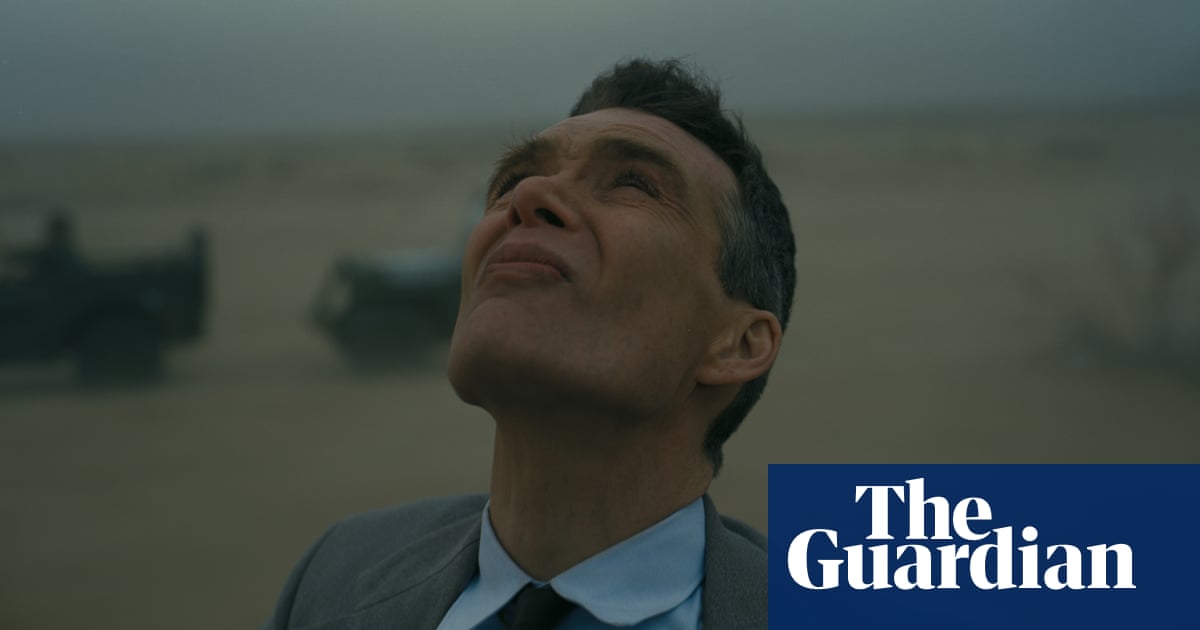Internet references conflating the two films drew anger in Japan, which was twice attacked by nuclear weapons during the second world war
It’s important to note that the nuclear program started as a race against the Nazis. Japan had no nuclear program during the war. Once the Nazis surrendered, there should have been no need to continue the development of the bomb. It was developed and then ultimately used on civilians, not once, but twice.
And if Japan hadn’t surrendered, it would have been used up to a dozen times.
The third bomb, and the others that may have followed, were a definitive part of the American strategy to end World War II. Although hopeful that nuclear weapons might end the war, American officials—from President Truman to his commanding officers—did not expect the war to end right away. Signs indicated that more atomic weapons were necessary, and U.S. leaders were rapidly moving to order more atomic strikes. Had the war continued, more atomic bombs would very likely have been used.
While that is true, as declassified documents show, it’s important to note they didn’t have that many more bombs ready at the moment (IIRC they did have a third one ready to be dropped) but they were being manufactured as quickly as they could, so the war would have to last a while for all of them to be used. But they planned to, which is a little scary
Yes, the article mentions the manufacturing bottleneck.
It’s insane that after seeing the effects of the first 2 bombs, military leaders still lobbied for more to be dropped.
The nuclear bombs were hardly more cruel than any other part of WW2. Nukes killed a comparatively low number of people. Per unit, nukes are scary, but it was just a drop in the bucket.
Only if Japan didn’t surrender after themselves seeing the effects.
The Japanese did have a nuclear program that made little progress and was unlikely to be a threat.
Ultimately your use of the word “should” implies that Japan would not have fought out the battle on the main land. Killing civils is bad, saving millions of lives is good.
deleted by creator
Humanity is better off today because Japan lost…
deleted by creator
Lmao.
deleted by creator
If you are going to add “and its allies” to that question then it’s only fair to ask what Japan and its allies did.
See Nazis.
Also see Japan annexing way more than the US ever did, and US hasn’t annexed any part of any sovereign country since wwii.
US foreign policy has been awful. But nothing even close to what Japan and the Nazis did and hoped to do.
Warning: graphic rape and mutilation of civilians, brutal maiming of prisoners, forced sex slavery, biological experimentation on humans, ethnic clenasing, and genocide of millions of people by JAPAN.
https://en.m.wikipedia.org/wiki/Japanese_war_crimes
The axis powers were openly brutal beyond imagination. It’s not even a debate.
On that note, I highly recommend the book Racing the Enemy by Hasegawa Tsuyoshi. It’s a very in depth look at the weeks before the surrender from inside the emperor’s cabinet.
One political aspect that influenced the decision to use atomic bombs on Japan was the Soviet Union. After Hiroshima, the USSR declared war on Japan. The Western Allies had already “lost the race” to Berlin, and the US did not want to lose that race in Japan, knowing that the communist bloc would be their next geopolitical rival. If Japan surrendered to them and not the USSR, they would be in a position to control the occupation, and therefore dictate the new political and economic systems of Japan. So speed was their priority: the firebombing of Tokyo was destructive, but slow, and a mainland invasion of Japan would have been catastrophic, and slow.
Source: my high school US history class (which I’m sure comes with it’s own set of biases, take it with a grain of salt).
The USSR was never in a serious position to launch an invasion of Japan, and Japan was not ready to surrender for anything short of complete and total defeat. Even after the first nuclear bomb was dropped, there was serious discussion of continuing the war; after the second bomb, there was a failed coup attempt against the Emperor to prevent him from surrendering.
The USSR’s intervention was mutually agreed upon by Allied (and actually requested by the Western Allies) forces and happened after the first bombing.
I don’t know if I agree that the USSR was not in a serious position to invade Japan. For one, after they declared war on Japan as promised in the Yalta/Tehran Conferences, they were able to invade Manchuria, Sakhalin, and the Kuril Islands. I’m aware that the Kurils are tiny tiny islands compared to Hokkaido and Honshu, and they were locations Japan was probably not defending vehemently. So maybe the USSR wasn’t prepared for the scale of a naval mainland invasion, but given the Japanese losses in Manchuria, it certainly seems they at least had the manpower in the region. It’s not like the Red Army had to march all the way from Berlin to Vladivostok.
The Soviets and Mongolians ended Japanese control of Manchukuo, Mengjiang (Inner Mongolia), northern Korea, Karafuto (South Sakhalin), and the Chishima Islands (Kuril Islands).
This also seems to be a point of discussion among historians: https://en.wikipedia.org/wiki/Soviet%E2%80%93Japanese_War#Impact_on_the_Japanese_decision_to_surrender
American historian Richard B. Frank points out that there are a number of schools of thought with varying opinions of what caused the Japanese to surrender. He describes what he calls the “traditionalist” view, which asserts that the Japanese surrendered because the Americans dropped the atomic bombs.
Tsuyoshi Hasegawa’s research has led him to conclude that the atomic bombings were not the principal reason for Japan’s capitulation. He argues that Japan’s leaders were impacted more by the swift and devastating Soviet victories on the mainland in the week after Stalin’s 8 August declaration of war because the Japanese strategy to protect the home islands was designed to fend off an Allied invasion from the south and left virtually no spare troops to counter a Soviet threat from the north.
Btw, the story about how the surrender broadcast recording was saved from the coup, I always thought that was a fascinating story.
So maybe the USSR wasn’t prepared for the scale of a naval mainland invasion, but given the Japanese losses in Manchuria, it certainly seems they at least had the manpower in the region. It’s not like the Red Army had to march all the way from Berlin to Vladivostok.
Speaking purely from the standpoint of a mainland invasion, which is what the US was trying to avoid, and the USSR could not have undertaken, in order to force a Japanese surrender. They were in a serious position to invade Manchuria (and did), but that’s not Japan so much as the Chinese puppet state of Japan.
A friend of mine told me about a very thorough video talking about Japan’s surrender and the (un)necessity of the atomic bombs: https://www.youtube.com/watch?v=RCRTgtpC-Go
They were literally racing for anime.
I still don’t really get what Barbie has to do with Oppenheimer besides releasing around the same time. 🥲
They released on the same day, so people made jokes. That’s it.
Warner brothers made a huge marketing campaign out of it also.
I highly recommend anyone interested in the history of the US’ usage of the bomb check this video out.
Thanks, I’ll check it out.
I have this unpleasant hunch that if any projection occurs here, it will end very soon after threats of, for example, a bomb from some 右翼団体 faction. It wouldn’t be the first time. Like in Nagoya, when a simple statue caused a furor of absolutely unbelievable proportions, and especially the subsequent reaction was completely out of proportion. Because pretty much everything that relates in any way to WW2 and doesn’t paint the portrait the government here is painting (“nothing happened at all and the numbers don’t add up either”) is sort of stonewalled here.









